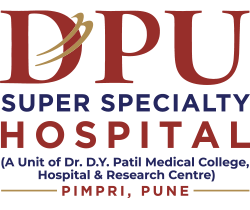Things You Should Know Before Becoming An Organ Donor

Organ donation is a noble act of giving that can save lives and improve the quality of life for many. However, becoming an organ donor is significant and requires thoughtful consideration and understanding.
This blog aims to illuminate the essential aspects you need to know before becoming an organ donor. We’ll cover the importance of informed consent, the need for a healthy lifestyle to ensure organ viability, and other vital organ donor requirements. By the end, you should feel more informed and ready to make a decision that could potentially save lives.
Understanding Informed Consent
Informed consent is the foundation of becoming an organ donor. It means you fully understand what organ donation entails, including the benefits and potential risks, and agree to it voluntarily. This process involves learning how donation works, what organs you can donate, and how your decision will impact your and recipients' lives.
Obtaining information from reliable sources, typically healthcare providers or registered organ donation organizations, is crucial. Ask questions, and make sure you receive clear answers. The process should always feel timely. Remember, signing up to be an organ donor is a personal decision and should be made based on comprehensive and accurate information.
Discussing Your Decision
Talking to your loved ones about your decision to become an organ donor is as essential as making the decision itself. This conversation ensures that your family understands your wishes and can support them in the event of your incapacitation. Discussing your choice can also alleviate concerns and prevent surprises during a crisis.
Maintaining a Healthy Lifestyle
As a potential organ donor, maintaining a healthy lifestyle is crucial. The viability of your organs for donation largely depends on your overall health. Here are some health considerations you should keep in mind:
Avoiding Toxic Habits
Steering clear of smoking, excessive alcohol consumption, and the use of illicit drugs is essential. These habits can significantly damage your organs, making them unsuitable for donation. For instance, smoking has been linked to lung disease, heart disease, and several types of cancer, all of which can compromise the health and usability of your organs.
Eating a Balanced Diet
Eating a diet rich in fruits, vegetables, whole grains, and lean proteins can help keep your organs healthy. Avoiding overly processed foods, excessive sugar, and high-fat diets is also beneficial. A healthy diet not only supports organ health but also improves your overall well-being.
Regular Exercise
Engaging in regular physical activity helps maintain cardiovascular health and manage weight. It also contributes to better organ functionality and longevity. Aim for at least 150 minutes of moderate aerobic exercise or 75 minutes of vigorous exercise per week, as health experts recommend.
Organ Donor Requirements
Before registering as an organ donor, you must meet specific eligibility requirements. These vary by country and region but generally include being of legal age and capable of giving informed consent. Health status is also considered, as certain chronic illnesses or infections could prevent you from donating.
Suppose you live in Pune and are considering becoming an organ donor. In that case, connecting with local ZTCC health facilities and organ donation centers is beneficial for getting accurate and region-specific information. The best organ donation centre in Pune would have a robust support system for donors, transparent processes, and facilities that ensure the best care for both donors and recipients.
Legal and Ethical Considerations
When you decide to become an organ donor, it's crucial to understand the legal and ethical frameworks that govern organ donation. These frameworks ensure that the process is conducted fairly and respectfully, protecting the rights of donors and recipients alike.
Informed Consent in Legality
Legally, informed consent must be documented. This typically involves registering with a national or regional donor registry and carrying an organ donor card. Review the consent form thoroughly and understand your rights as a donor, including the right to withdraw consent at any time.
Ethical Standards
Organ donation must adhere to strict ethical standards, which include ensuring that donation decisions are made without coercion and respecting the donor’s autonomy and intentions. The process is also strictly monitored to prevent commercial trade or exploitation of donated organs.
Psychological Impact of Donation
Deciding to become an organ donor can also have a psychological impact on you and your family. It's essential to consider and prepare for these aspects:
Emotional Preparedness
Think about your emotional readiness to donate. Some people might feel anxiety or fear about the donation process and its implications. Counseling and discussions with healthcare professionals or experienced donors can provide reassurance.
Family Dynamics
Your decision might affect your family dynamics. Family members may have different views about organ donation, which can lead to disagreements or stress. Open communication is essential to navigate these emotional waters and ensure your family supports your decision.
Financial Considerations
While organ donation is a volunteer activity, and donors are not paid, there are some financial aspects to consider:
Cost Implications
Typically, the donor's family does not bear the costs associated with the donation. These are usually covered by the recipient’s medical insurance or the donation facility. However, confirming this with the donation center is essential to avoid unexpected expenses.
Insurance and Employment
Understand how your decision might affect aspects like life insurance, health insurance, and employment. In many regions, laws protect donors from discrimination, but reviewing your policies and discussing your decision with an HR representative is wise if needed.
Long-Term Health Monitoring
Long-term health monitoring is crucial after becoming an organ donor, mainly if you donate an organ during your lifetime (like a kidney or part of your liver). This ensures that your health remains optimal and any potential complications are managed effectively.
Regular Check-Ups
Schedule regular medical check-ups to monitor your health status. These visits can help catch any health issues early and ensure your remaining organs function correctly.
Lifestyle Adjustments
After a donation, you may need to make certain lifestyle adjustments to maintain your health. These include dietary changes, increased physical activity, or medications supporting organ function.
Choosing the Right Donation Centre
When looking for the best organ donation centre, especially in places like Pune, consider the following factors:
- Accreditation and Reviews: Ensure health authorities accredit the centre and have positive reviews from previous donors and healthcare professionals.
- Transparency: The centre should communicate all aspects of the donation process, including how they handle organ matching and transplantation.
- Support Services: Look for centres that provide comprehensive support services, including counseling and medical follow-up for donors.
Conclusion
Choosing to become an organ donor is a profound decision that requires careful thought and consideration. By ensuring informed consent, maintaining a healthy lifestyle, and choosing the right donation centre, you can contribute positively to the lives of others while ensuring your health and well-being.
At DPU Super Specialty Hospital, Pimpri, Pune, we provide comprehensive support and state-of-the-art facilities to guide and assist you through every step of the donation process.
Remember, your decision to donate can turn the tide for recipients and their families, offering them a new lease on life. If you’re considering this selfless act, take the time to understand all of the health considerations for organ donation and proceed with confidence and peace of mind.








